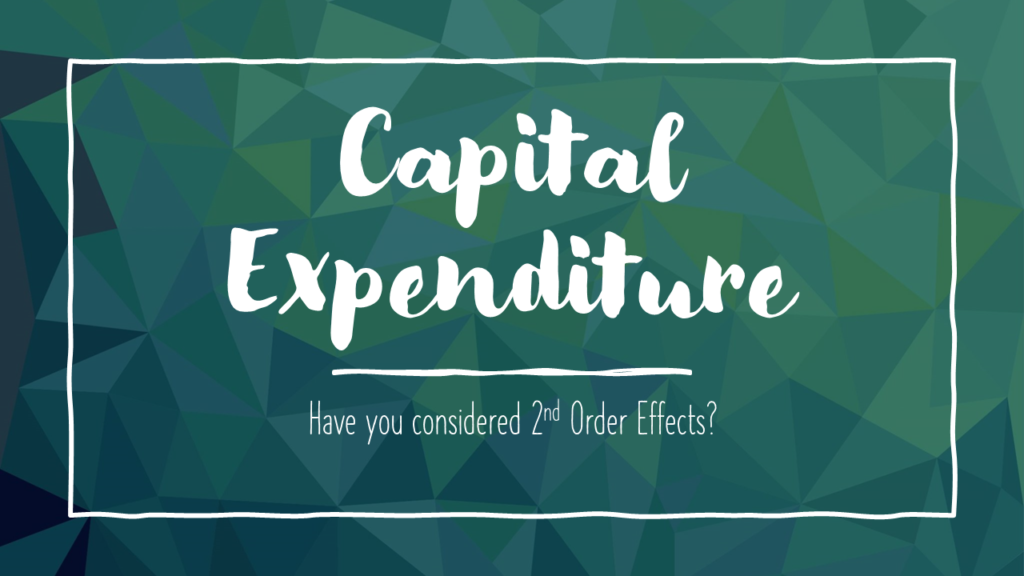Today I am going to talk about why some industries continue to have dismal business economics despite incurring large capital expenditure.
While I was starting to invest in the equity markets, I was often perplexed as to when companies announced capital expenditure (‘capex’) plans, why did their prices go up, especially on the day of announcement? For me, it was simple – Cash is supposedly moving out or would be moving out of business, why should investors feel happy, thereby resulting in stock price increase?
However, only later did my father told me that companies primarily undertake capex because they believe that there are better growth prospects; this results in market sentiments becoming positive, thereby giving fillip to the stock prices.
While the above maxim was something which I lived by until I bumped into Warren Buffett’s thoughts around Textile business. Berkshire Hathaway was into textile business to begin with before Warren purchased it. The business was a terrible commodity business, where Buffett and Charlie Munger, his business partner were making low-end textiles.
One day, the loom manufacturers came to Warren and said, “We’ve invented a new loom that will do twice as much work your old ones.” Warren said, “Gee, I hope this doesn’t work – because if it does, I’m going to close the mill”. And he did it eventually, after many years, of course!!
So, what prompted Warren to close the mill eventually?
While the productivity of the machines was increasing, the entire benefit of producing a commodity product was going to the benefit of the customers. Nothing was sticking to their ribs as owners!!
This is where 2nd order effect comes into play, which is to determine how the benefits of capex is going to percolate down the road. That is, how much is going to stay home and how much is going to flow through to the customer.
These could be wonderful new inventions – capex that gives you nothing as owners except the opportunity to spend a lot of more money in a business that is still going to be lousy. The money still does not come to the owner. All the advantages from great improvements flow through to the customers.
It’s not that the machines or the looms aren’t better – it’s just that the savings don’t accrue to the business owner. The cost reductions come through all right, but the benefit of the cost reductions does not go to the guy who incurs capex. It is such a simple idea, and yet, its often forgotten.
No wonder, businesses with terrible economics in terms of Return on Capital Employed (ROCE) continue to bleed slowly. The capital getting employed in the business does not generate incremental return for the company or its owner. While the owner continues to incur capex, the low ROCE of the company/industry does not even cover its cost of capital in multiple instances.
Industries like, Aviation, Power, Infrastructure, Steel, Textiles, Hospitality continue to have dismal average ROCEs.
While three is no dearth of capex which gets announced, however, the benefits keep flowing to the end consumer with minimal or no money left to the businesses.
It is like putting money in a savings bank account which gives an interest rate of ~3% p.a. No matter how much money you deposit, you would continue to earn only 3% p.a. even on the higher amount.
While the assured return gives an illusion of providing stable nominal returns, however, it does not cover you for even inflation. I had talked about Curse of Assured Returns on my first episode of this podcast series. You may check it out.
So, next time a company announces capex, start taking 2nd order effects into your projection as well. Look at the average ROCE of the industry / company historically. If the average ROCE has been sub – 8% p.a., you may want to think again.
As someone wise has said, “But death is not always a bad outcome, you know, and a quick death can be better than a slow one”
Please note that these are my personal views. Request you to conduct your own independent research or consult your financial advisor before investing.
Hope you enjoyed listening to this!!
For more interesting topics, you may check out my website, www.jaagrav.com. If you want to reach out to me, you may email me at vikas@jaagrav.com
Thanks!

